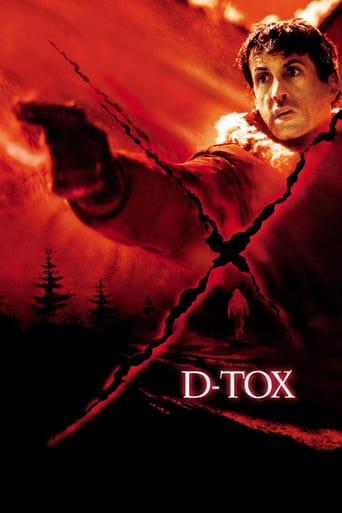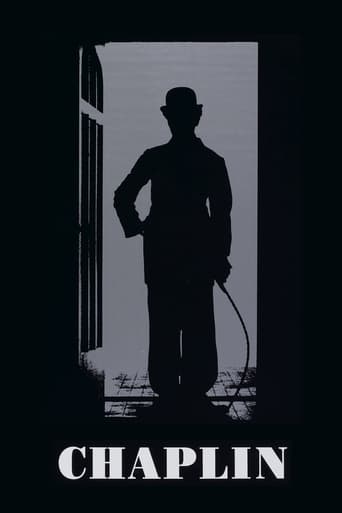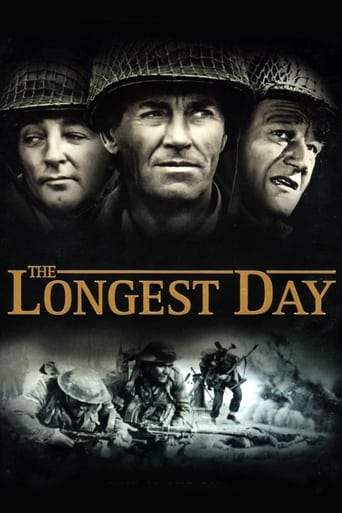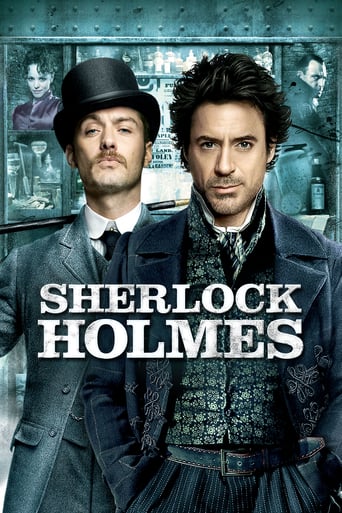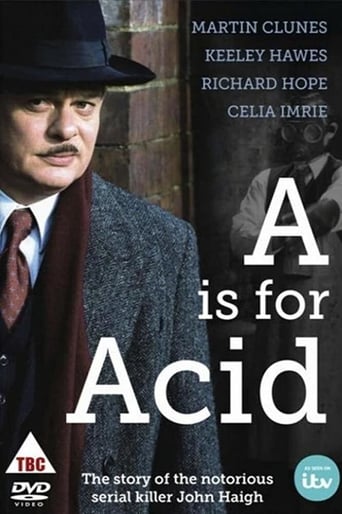
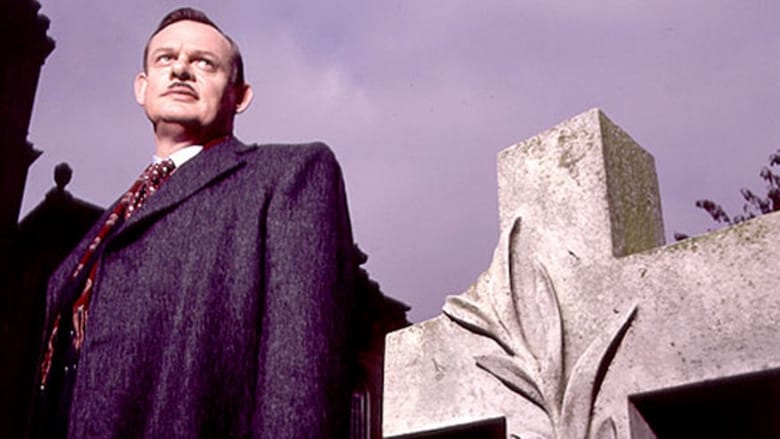
A Is for Acid (2002)
Dramatisation of the true story of the notorious 'acid bath murderer' John Haigh, who murdered women and disposed of their bodies in vats of acid in the 1940s. He was only caught when the gallstones of one of his victims failed to dissolve in the acid and were detected by the pathologist who examined the residue from the acid bath.
Watch Trailer
Cast


Similar titles
Reviews
An affable psychopath in post-war Britain suckers in his down-at-heel acquaintances to liquidate them in acid and release ready funds. Will he be caught? Lovely Poirot-style production, with oodles of acting quality. No great psychological insight, but at least the moral brigade is kept at bay and the natural horror seeps through the period atmosphere.It refuses to creepify in the acid bath scenes - the last victim might have breathed in then gurgled out a great bubble of blood, but no - so a gentle horror, which was fine by me. I still took pleasure in the pace and performances, the setting and sound.Overall, nicely judged and a good surprise.
Martin Clunes plays with relish the real life Acid Bath murderer, John George Haigh in made for television film.Haigh was a fraudster who came from a strict religious upbringing. He turned to murder supposedly on the premise that if they cannot find a body you cannot be charged for murder. Something he was wrong about.Presumably his motive was money because as an inventor and gamble he was not much cop. He did well with fast cars, women and being charming. He was also handy with an acid bath where he would dump the murdered corpses which in time would dissolve.The film looks very nice but its ultimately shallow like a lot of ITV drama films that rely on its star and the production design rather than depth in its screenplay.We know very little why he killed. Was it an addiction? Haigh also killed several strangers a crime he confessed to after his arrest.A decent enough drama but it amounts to being just average.
I saw this TV-made film for the first time last night. I know "sociopath" and "psychopath" are labels and that everyone is an individual and no label, even attached to a mass-murderer such as Haigh could really explain his actions which can only be described as destructive and evil. Martin Clunes was clearly relishing the role and I have to say, I found him completely convincing in it. Whilst the adaptation does suggest the strict religious sect his parents adhered to was a strong influence in his development into a psychopathic murderer, I think this film interpretation of his character indicated he had a sense of entitlement to taking what he wanted in life and he had no boundaries, no conscience, saw no reason why he could not do what he wanted to do to get it all. He would appear to be one of those people who believes their own lies to the extent they can successfully convince many others. I think the reason he committed the murders was because he could and he seems to have committed them for personal gain. He had none of the normal moral and ethical boundaries in place to prevent him. He was unable to understand or foresee the consequences of his actions. Since the explanation he was influenced by his religious background came from Haigh himself, who was a practised and pathological liar, I leave it to the experts to determine whether such people as Haigh are the products of nature or nurture or a tragic combination of many contributing influences.
Martin Clunes has an amazing range as an actor; he has attempted everything from Mr Chipps in "Goodbye Mr Chipps" to Garry the Slob in "Men Behaving Badly". In this TV film scripted by Glenn Chandler, creator of "Taggart", he impersonates a dapper, cheerful, sport car driving type who is also an accomplished pianist called John Haigh who turns out to be a diabolical serial killer who disposes of his victims in acid baths.. It is a nice performance and the production values are splendid seldom has England in the 1940s been better evoked, but there is something missing. What happened is clearly conveyed. How it was done is depicted as graphically as most audiences could reasonably take. But, the question of "why" is left hanging, as it were. Was it for the money? Did Haigh, like Dr Shipman, just get a kick out of killing? Or, despite the opinion of the dozen or so experts the prosecutors and the Home Office consulted, was Haigh crazy? At the trial, not shown in this film, Haigh, represented by top-flight counsel paid for by "The News of the World", pleaded insanity. Only one psychiatrist gave evidence for the defence, to such little effect that the prosecutor didn't bother to cross-examine him.Well, it's not the film-makers' fault that Haigh was one of those bland serial killers who defy understanding. In line with his own account, Haigh's Yorkshire Plymouth Brethren parents are depicted as strict and narrow, but not as unloving. He turned to crime at an early age and had quite a record of petty dishonesty offences. For him, prison was Crime University and he hatched the idea for his body disposal method, the acid bath, while inside. He was capable of conducting an emotional relationship with the youthful "Gillian" (Keely Hawes) while luring his victims to their deaths.For what it's worth I think Haigh's train of thought went something like this: "I am an outsider, society does not value my true worth, I will be good to people who do really appreciate me (like my parents and Gillian), and the rest are fair game." At least it makes more sense than the vampire theory. Haigh is also one of those criminals who were bound to be caught sooner or later (his arrest was not a miracle of detection), which makes one ask: did he think he was invincible or did he really want to be caught? The film doesn't help us with this, but it's a good reconstruction and a fine piece of acting by Martin Clunes.







